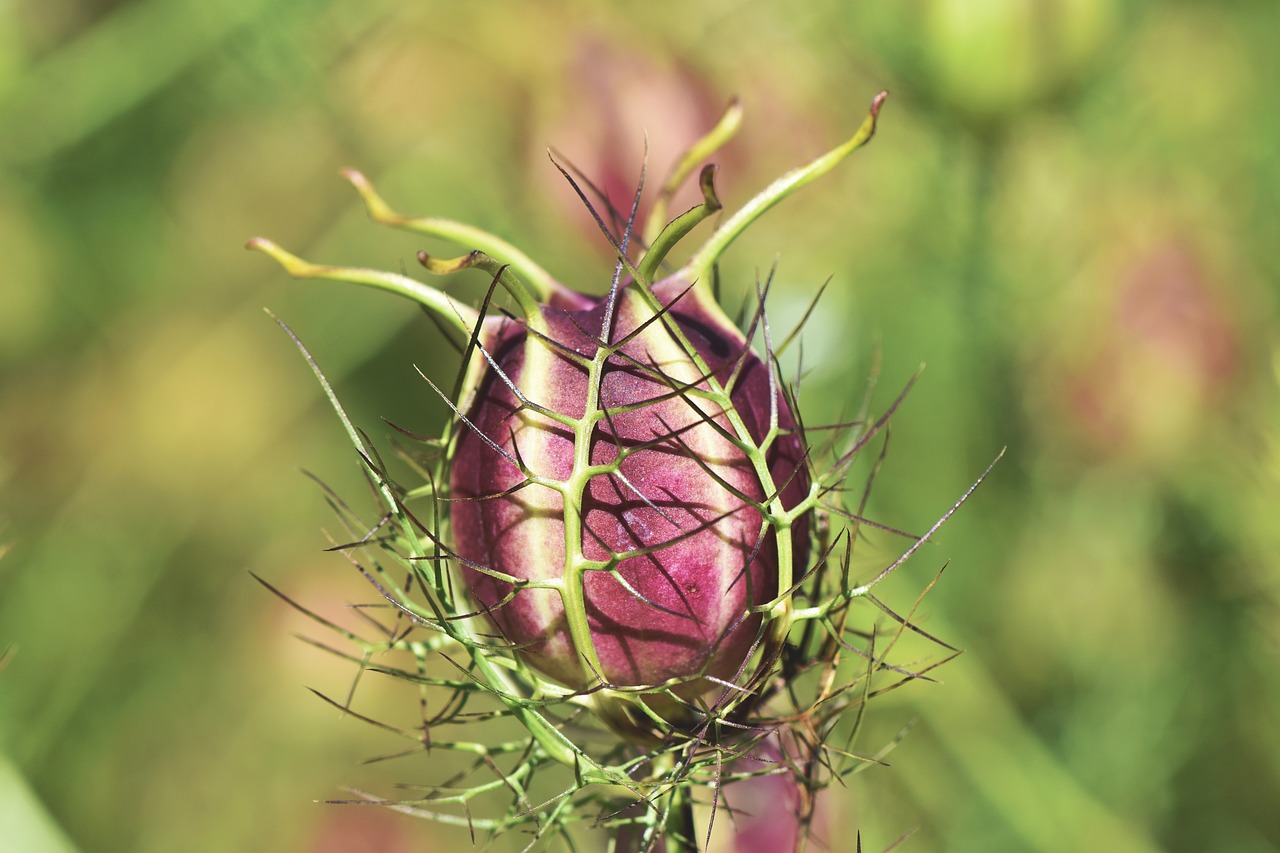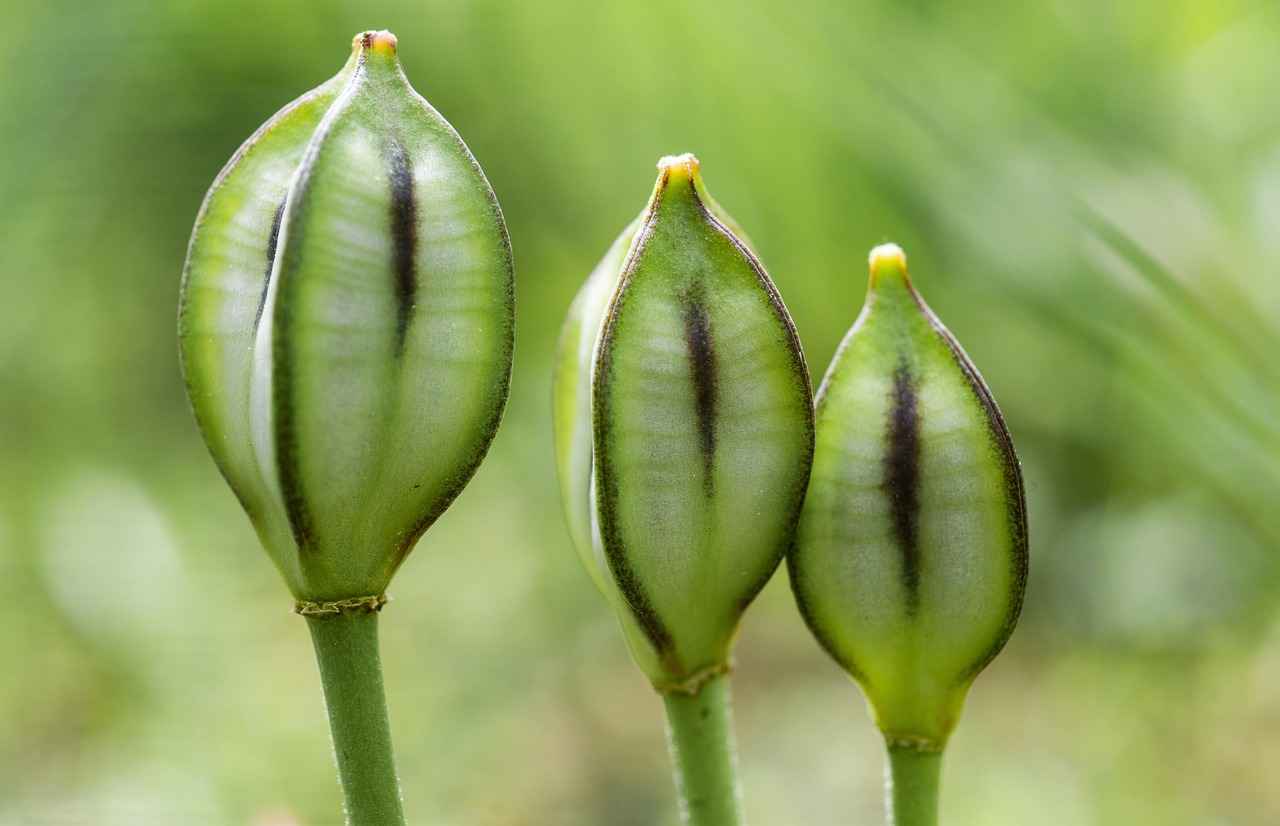This article delves into the protein content of chia seeds, highlighting their numerous benefits for muscle growth and offering practical tips on how to incorporate them into your diet effectively for optimal results.
Chia seeds are celebrated for their remarkable nutritional profile, especially their high protein content. These tiny seeds boast a unique combination of essential nutrients that contribute to muscle growth and overall health. With their ability to provide energy and support recovery, chia seeds are a fantastic addition to any diet.
Each serving of chia seeds, approximately 2 tablespoons, contains about 4 grams of protein. This makes them a valuable source of protein for individuals aiming to enhance their muscle development. Their high protein content, combined with other nutrients, makes them an excellent choice for athletes and fitness enthusiasts.
When we compare chia seeds to other plant-based protein sources, they stand out due to their complete amino acid profile. Unlike many other plant proteins that may lack certain essential amino acids, chia seeds provide all nine necessary for muscle repair and growth. This makes them an ideal option for vegans and vegetarians.
The presence of all nine essential amino acids in chia seeds is crucial for muscle recovery and growth. This complete amino acid profile distinguishes chia seeds from many other plant proteins, ensuring that you receive the necessary building blocks for muscle development.
Beyond their protein content, chia seeds are rich in omega-3 fatty acids, fiber, and antioxidants. These nutrients not only contribute to overall health but also support muscle recovery post-exercise, making chia seeds a versatile addition to any diet.
Adding chia seeds to your meals can enhance both flavor and nutritional value. Here are some effective ways to incorporate them:
- Smoothies: Blend chia seeds into your favorite smoothies for a protein boost.
- Overnight Oats: Mix chia seeds with oats and your choice of milk for a nutritious breakfast.
- Baking: Add chia seeds to muffins, bread, or energy bars for added texture and nutrition.
While chia seeds are generally safe for most individuals, it’s essential to consider potential allergies and digestive issues. Their high fiber content may lead to gastrointestinal discomfort for some, so a gradual introduction into the diet is advisable.
Some people may experience allergic reactions to chia seeds, while others might face digestive challenges. It is important to listen to your body and consult with a healthcare professional if you have concerns.
Experts recommend a daily intake of 1 to 2 tablespoons of chia seeds for optimal health benefits. This amount provides a balanced approach to incorporating them into your diet without overdoing it.
Chia seeds not only support muscle growth but also play a significant role in muscle recovery due to their anti-inflammatory properties and nutrient-rich profile. This makes them an essential addition to any athlete’s diet.
The omega-3 fatty acids found in chia seeds help reduce inflammation, which can enhance recovery times and improve overall muscle function after intense workouts. This makes chia seeds a valuable ally in your post-exercise nutrition.
Chia seeds can absorb up to 12 times their weight in water, making them an excellent natural source for hydration. Staying hydrated is crucial for optimal muscle performance and recovery, especially during intense training sessions.
Incorporating chia seeds into a balanced diet can significantly enhance overall nutrition. They provide a plant-based protein source while complementing other food groups, making them an excellent choice for muscle growth and health.
Combining chia seeds with fruits, vegetables, and healthy fats can create a nutrient-dense meal that supports muscle growth and overall well-being. This synergy maximizes the benefits of chia seeds.
From smoothies to salads, there are countless creative ways to include chia seeds in your meals. This not only ensures you enjoy their health benefits but also keeps your diet varied and interesting.
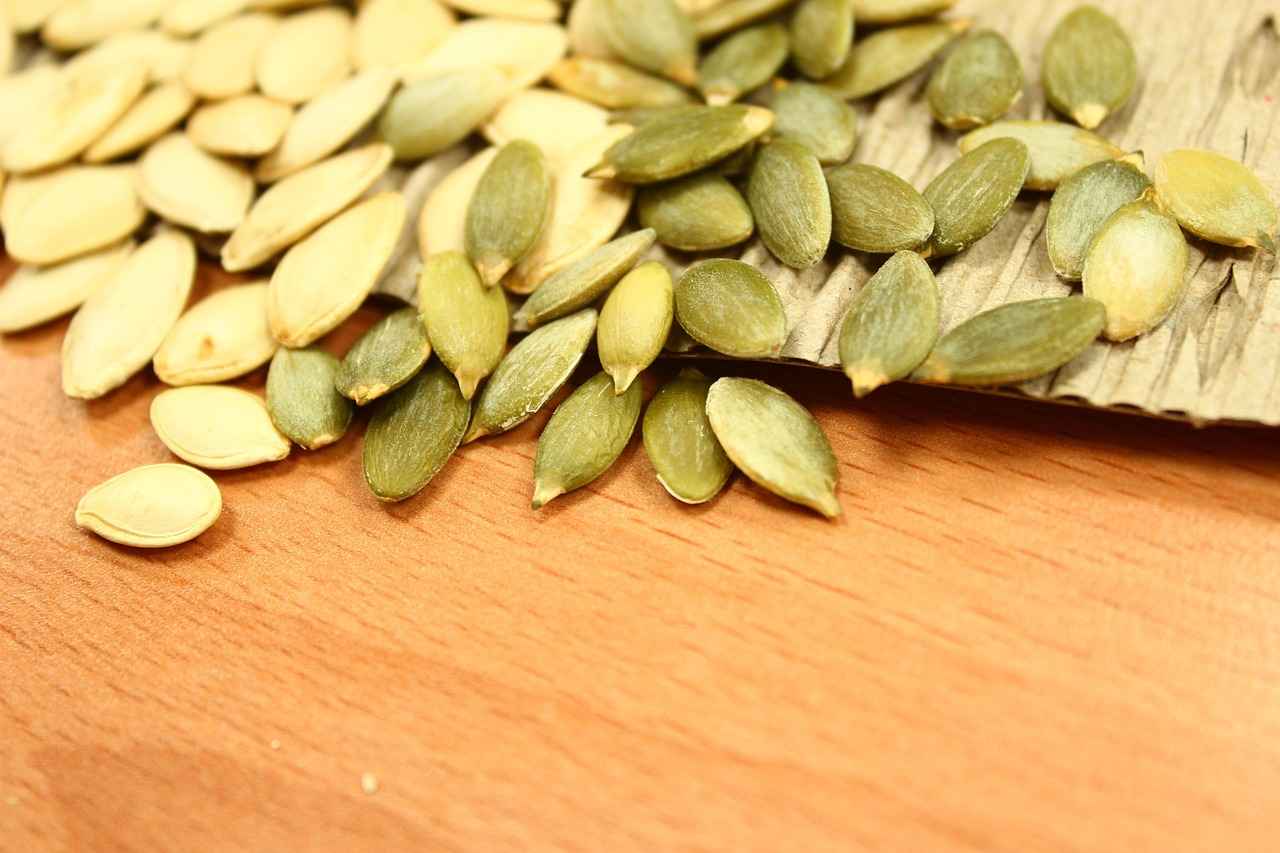
What Makes Chia Seeds a Protein Powerhouse?
Chia seeds have gained immense popularity in recent years, thanks to their remarkable nutritional benefits. These tiny seeds are not only a source of essential nutrients but are also recognized for their impressive protein content. This article will delve into what makes chia seeds a protein powerhouse, their health benefits, and how to incorporate them into your daily diet.
Chia seeds are an excellent source of plant-based protein, containing approximately 4 grams of protein per 2 tablespoons. This high protein content makes them a valuable addition to any diet, particularly for those looking to build muscle or maintain overall health. Unlike many other plant proteins, chia seeds provide a complete amino acid profile, which is essential for muscle repair and growth.
When compared to other common protein sources, chia seeds hold their own. For instance, they offer more protein than many grains and legumes, making them an ideal option for vegans and vegetarians. Additionally, chia seeds are unique in that they contain all nine essential amino acids, which are not found in many plant-based proteins. This characteristic sets them apart as a comprehensive protein source.
In addition to their protein content, chia seeds are rich in omega-3 fatty acids, fiber, and antioxidants. These nutrients contribute to overall health and can aid in muscle recovery after exercise. The high fiber content in chia seeds promotes digestive health, while antioxidants help combat oxidative stress in the body.
Adding chia seeds to your daily meals is simple and versatile. You can sprinkle them on salads, blend them into smoothies, or mix them into yogurt. One popular way to consume chia seeds is by making chia pudding. To prepare, mix chia seeds with your choice of milk or plant-based alternative and let it sit overnight in the refrigerator. This creates a delicious, nutritious breakfast or snack option.
While chia seeds are generally safe for most people, it’s important to consider potential allergies and digestive issues. Some individuals may experience gastrointestinal discomfort due to the high fiber content. It’s advisable to start with a small amount and gradually increase your intake.
Experts recommend consuming about 1 to 2 tablespoons of chia seeds daily to reap their health benefits without overdoing it. This amount provides a good balance of nutrients while supporting your protein goals.
Chia seeds not only support muscle growth but also aid in muscle recovery. The omega-3 fatty acids found in these seeds have anti-inflammatory properties, which can help reduce muscle soreness and improve recovery times after intense workouts. Additionally, their ability to absorb water can assist in maintaining hydration levels, crucial for optimal muscle performance.
Incorporating chia seeds into a balanced diet can enhance your overall nutrition. They can be paired with various foods, such as fruits, vegetables, and healthy fats, to create nutrient-dense meals. For example, adding chia seeds to oatmeal or smoothies can significantly boost their protein and nutrient content.
- Chia Seed Smoothies: Blend chia seeds with your favorite fruits and vegetables for a nutritious drink.
- Overnight Oats: Combine oats, chia seeds, and milk or yogurt for a quick breakfast.
- Chia Seed Energy Bars: Mix chia seeds with nuts, dried fruits, and honey for a healthy snack.
By exploring these various ways to include chia seeds in your diet, you can enjoy their many health benefits while keeping your meals exciting and diverse.
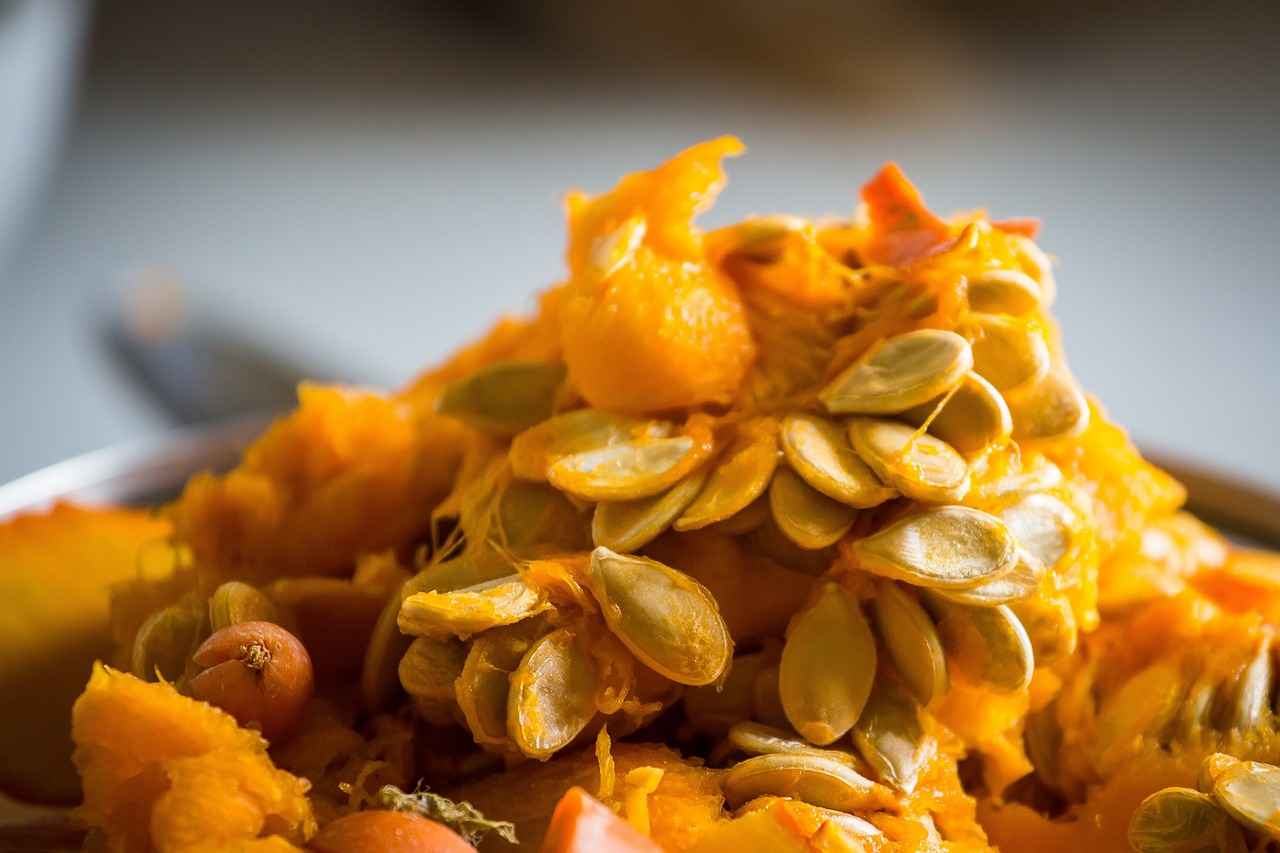
How Much Protein is in Chia Seeds?
Chia seeds have gained popularity as a superfood, particularly for their impressive nutritional profile. Among the myriad of benefits they offer, their protein content stands out, making them an excellent choice for anyone looking to enhance their protein intake, especially for muscle development. This article delves into the protein content of chia seeds, their advantages for muscle growth, and practical ways to incorporate them into your diet.
Chia seeds contain approximately 4 grams of protein per 2 tablespoons, making them a significant source of plant-based protein. This amount can contribute meaningfully to your daily protein requirements, especially for those engaged in strength training or looking to build muscle. The protein found in chia seeds is not only substantial but also comes with a complete amino acid profile, which is essential for muscle repair and growth.
Chia seeds are unique among many plant proteins because they provide all nine essential amino acids. This characteristic is crucial for muscle recovery and growth, distinguishing chia seeds from other plant-based sources that may lack certain amino acids. Additionally, the protein in chia seeds is easily digestible, making it an efficient option for those looking to increase their protein intake without the heaviness often associated with animal proteins.
When stacked against other popular protein sources, chia seeds hold their ground remarkably well. For instance, while lentils and quinoa are also excellent plant proteins, they may not possess the same complete amino acid profile as chia seeds. This makes chia seeds particularly appealing for vegans and vegetarians who are seeking to meet their protein needs without consuming animal products.
Beyond their protein content, chia seeds are rich in omega-3 fatty acids, fiber, and antioxidants. These nutrients not only contribute to overall health but also support muscle recovery post-exercise. The high fiber content aids in digestion and promotes a feeling of fullness, which can be beneficial for those managing their weight while trying to build muscle.
- Smoothies: Add a tablespoon of chia seeds to your favorite smoothie for a protein boost.
- Overnight Oats: Mix chia seeds into your oats for a nutritious breakfast.
- Baked Goods: Incorporate chia seeds into muffins or breads for added texture and nutrition.
- Salads: Sprinkle chia seeds over salads for a crunchy topping.
While chia seeds are generally safe for most individuals, it is essential to consider potential allergies and digestive issues. Some people may experience allergic reactions, while others might find the high fiber content causes gastrointestinal discomfort. It is advisable to introduce chia seeds gradually into your diet to assess your body’s response.
Experts recommend a daily intake of 1 to 2 tablespoons of chia seeds to reap their health benefits without overdoing it. This amount provides a balanced approach that can easily fit into a variety of diets.
Chia seeds not only support muscle growth but also play a role in muscle recovery due to their anti-inflammatory properties. The omega-3 fatty acids found in chia seeds help reduce inflammation, which can enhance recovery times and improve overall muscle function after intense workouts. Furthermore, chia seeds can absorb up to 12 times their weight in water, making them an excellent natural source for hydration—crucial for optimal muscle performance.
Incorporating chia seeds into a balanced diet can enhance overall nutrition. They provide a plant-based protein source while complementing other food groups for muscle growth and health. Pairing chia seeds with fruits, vegetables, and healthy fats can create nutrient-dense meals that support muscle growth and overall well-being.
In summary, chia seeds are a versatile and powerful addition to any diet, especially for those focused on muscle development and recovery.
Comparing Chia Seeds to Other Protein Sources
When it comes to plant-based protein sources, chia seeds have emerged as a frontrunner due to their exceptional nutritional profile. These tiny seeds provide a complete amino acid profile, making them an excellent choice for individuals, especially vegans and vegetarians, who may struggle to find adequate protein sources that meet their dietary needs.
Chia seeds are not just another addition to your pantry; they are a nutritional powerhouse. Unlike many other plant-based proteins, they contain all nine essential amino acids. This complete amino acid profile is crucial for muscle repair and growth, which is often a concern for those following a plant-based diet. Most plant proteins, such as beans and lentils, lack one or more essential amino acids, making chia seeds a superior option.
| Protein Source | Protein (per 100g) | Complete Amino Acids |
|---|---|---|
| Chia Seeds | 17g | Yes |
| Quinoa | 14g | Yes |
| Lentils | 9g | No |
| Pea Protein | 25g | No |
Chia seeds offer more than just protein. They are rich in omega-3 fatty acids, which are known for their anti-inflammatory properties. This makes them beneficial not only for muscle recovery but also for overall heart health. Additionally, the high fiber content in chia seeds aids digestion and promotes a feeling of fullness, making them a great addition to weight management plans.
- Easy to Incorporate: Chia seeds can be easily added to smoothies, oatmeal, and baked goods.
- Hydration Benefits: When soaked in water, chia seeds expand and form a gel-like substance, which can help keep you hydrated.
- Nutritious Gel Substitute: They can be used as an egg substitute in vegan baking, providing both texture and nutrition.
While chia seeds are generally safe for most people, it’s essential to consume them in moderation. Their high fiber content can cause digestive discomfort if introduced too quickly into the diet. Gradually increasing your intake can help your body adjust.
In summary, when comparing chia seeds to other protein sources, their complete amino acid profile, coupled with additional health benefits, makes them a standout choice. Whether you are an athlete looking to enhance muscle growth or someone simply seeking to improve your overall health, chia seeds can play a vital role in your diet. Their versatility and nutritional density make them an easy addition to various meals, ensuring that you not only meet your protein needs but also enjoy a range of health benefits.
Complete Amino Acid Profile
Chia seeds are often hailed as a superfood, and one of the key reasons for this acclaim is their . Unlike many plant-based proteins, which can lack one or more essential amino acids, chia seeds provide all nine essential amino acids necessary for human health. This characteristic makes them a particularly valuable addition to the diets of those who may not consume animal products, such as vegans and vegetarians.
Amino acids are the building blocks of protein and play a crucial role in muscle repair and growth. They are also involved in various metabolic processes, hormone production, and immune function. The nine essential amino acids that chia seeds offer include:
- Histidine
- Isoleucine
- Leucine
- Lysine
- Methionine
- Phenylalanine
- Threonine
- Tryptophan
- Valine
When comparing chia seeds to other plant proteins, it becomes evident that they stand out for their nutritional completeness. Many other plant sources, such as beans and lentils, may lack one or more essential amino acids. For instance, while legumes are high in lysine, they often fall short in methionine. In contrast, chia seeds provide a balanced profile that supports muscle development and overall health.
For individuals engaged in regular physical activity, especially strength training, the importance of consuming a complete protein cannot be overstated. Chia seeds can be a convenient and effective way to ensure adequate amino acid intake. They not only aid in muscle recovery but also help reduce muscle soreness due to their anti-inflammatory properties, thanks to the presence of omega-3 fatty acids.
Incorporating chia seeds into your diet is simple and versatile. Here are some practical ways to enjoy their benefits:
- Chia Pudding: Mix chia seeds with your choice of milk or yogurt and let it sit overnight for a delicious breakfast.
- Smoothies: Add a tablespoon of chia seeds to your smoothie for an extra protein boost.
- Baking: Substitute chia seeds for eggs in baking recipes by mixing them with water to create a gel-like consistency.
- Salads: Sprinkle chia seeds on salads for added crunch and nutrition.
While chia seeds are generally safe for most individuals, those with specific allergies or digestive issues should exercise caution. The high fiber content can cause gastrointestinal discomfort if consumed in excess, so it’s advisable to start with small amounts and gradually increase intake.
In summary, chia seeds are a remarkable source of complete protein, making them an excellent choice for anyone looking to enhance their muscle growth and overall health. Their unique combination of essential amino acids, along with additional nutrients like omega-3 fatty acids and fiber, positions them as a powerful ally in any diet. By incorporating chia seeds into your meals, you can enjoy their numerous health benefits while supporting your fitness goals.
Additional Nutritional Benefits
Chia seeds are not just a remarkable source of protein; they are also packed with a variety of nutritional benefits that contribute significantly to overall health and wellness. In this section, we will delve deeper into these benefits, focusing on their rich content of omega-3 fatty acids, fiber, and antioxidants, all of which play crucial roles in supporting muscle recovery and enhancing general well-being.
Omega-3 fatty acids are essential fats that our bodies cannot produce on their own. They are vital for numerous bodily functions, including:
- Reducing Inflammation: Omega-3s help lower inflammation levels in the body, which can lead to quicker recovery after intense workouts.
- Supporting Heart Health: These fatty acids contribute to cardiovascular health by reducing triglycerides and lowering blood pressure.
- Enhancing Brain Function: Omega-3s are crucial for brain health, improving cognitive functions and potentially reducing the risk of neurodegenerative diseases.
Chia seeds are an excellent source of dietary fiber, with approximately 10 grams of fiber per 2 tablespoons. This high fiber content offers several benefits:
- Promoting Digestive Regularity: Fiber aids in digestion, helping to maintain regular bowel movements and prevent constipation.
- Supporting Weight Management: High-fiber foods are known to promote satiety, which can help control appetite and support weight loss efforts.
- Regulating Blood Sugar Levels: Fiber slows down the absorption of sugar, which can help stabilize blood sugar levels, making it particularly beneficial for those with diabetes.
Chia seeds are rich in antioxidants, which are compounds that help combat oxidative stress in the body. The benefits of antioxidants include:
- Reducing Muscle Damage: Antioxidants can help minimize muscle damage caused by free radicals during exercise, aiding in faster recovery.
- Enhancing Immune Function: A strong immune system is essential for athletes, and antioxidants can help bolster immune responses.
- Promoting Overall Health: By reducing oxidative stress, antioxidants contribute to better overall health, reducing the risk of chronic diseases.
Incorporating chia seeds into your daily meals is easy and versatile. Here are some practical ideas:
- Smoothies: Add a tablespoon of chia seeds to your favorite smoothie for an extra nutritional boost.
- Overnight Oats: Mix chia seeds into your overnight oats for a hearty breakfast that keeps you full.
- Baking: Incorporate chia seeds into baked goods like muffins or bread for added texture and nutrition.
In summary, chia seeds offer a wealth of additional nutritional benefits beyond protein, including essential omega-3 fatty acids, dietary fiber, and powerful antioxidants. These components not only support muscle recovery but also contribute to overall health, making chia seeds a valuable addition to any diet.
How to Incorporate Chia Seeds into Your Diet
Chia seeds have gained significant popularity in recent years, not just for their health benefits but also for their versatility in various dishes. Incorporating these tiny seeds into your meals can significantly enhance both flavor and nutritional value, making it easier to meet your protein goals. Below are some practical and delicious ways to add chia seeds to your daily diet.
One of the most popular ways to enjoy chia seeds is by making a chia seed pudding. Simply mix 3 tablespoons of chia seeds with 1 cup of your choice of milk (dairy or plant-based) and let it sit in the refrigerator for a few hours or overnight. The seeds will absorb the liquid and create a creamy texture. You can enhance the flavor by adding vanilla extract, cocoa powder, or sweeteners like honey or maple syrup. Top with fruits, nuts, or granola for a nutritious breakfast or snack.
Add chia seeds to your favorite smoothies for an extra protein boost. Just a tablespoon can enhance the nutritional profile without altering the flavor. Combine fruits, leafy greens, and a scoop of chia seeds in a blender for a delicious and healthy drink. This method is perfect for those on the go who want to pack in their nutrients quickly.
Chia seeds can be incorporated into baked goods such as muffins, bread, and pancakes. They add a delightful crunch and a nutritional kick. For every cup of flour in your recipe, consider adding 2 tablespoons of chia seeds. You can also use chia seeds as an egg substitute in vegan baking by mixing 1 tablespoon of chia seeds with 2.5 tablespoons of water and letting it sit until it forms a gel-like consistency.
Sprinkling chia seeds over salads can add texture and a nutty flavor. They work well in both green salads and grain-based salads. Combine with your favorite vegetables, and dress with olive oil and vinegar for a refreshing meal. Chia seeds not only enhance the flavor but also contribute healthy fats and protein.
Chia seeds can also be added to soups and stews as a thickening agent. When cooked, they absorb liquid and create a gel-like substance that can enhance the texture of your dish. This is particularly useful in hearty vegetable soups or chili, providing both nutrition and consistency.
Homemade energy bars are another fantastic way to incorporate chia seeds. Combine oats, nut butter, honey, and chia seeds, then press into a pan and refrigerate until set. These bars are perfect for a quick snack or pre-workout energy boost, ensuring you have a healthy option readily available.
For a refreshing twist on hydration, consider adding chia seeds to your water. Mix 1 tablespoon of chia seeds into a glass of water, let it sit for about 10 minutes, and enjoy. This not only keeps you hydrated but also provides a small dose of protein and fiber.
Incorporating chia seeds into your diet is not only easy but also incredibly beneficial for your overall health. With their high protein content and versatility, you can enjoy these tiny seeds in a multitude of ways, enhancing your meals while helping you meet your dietary goals. Start experimenting today, and discover the numerous benefits that chia seeds can bring to your table!
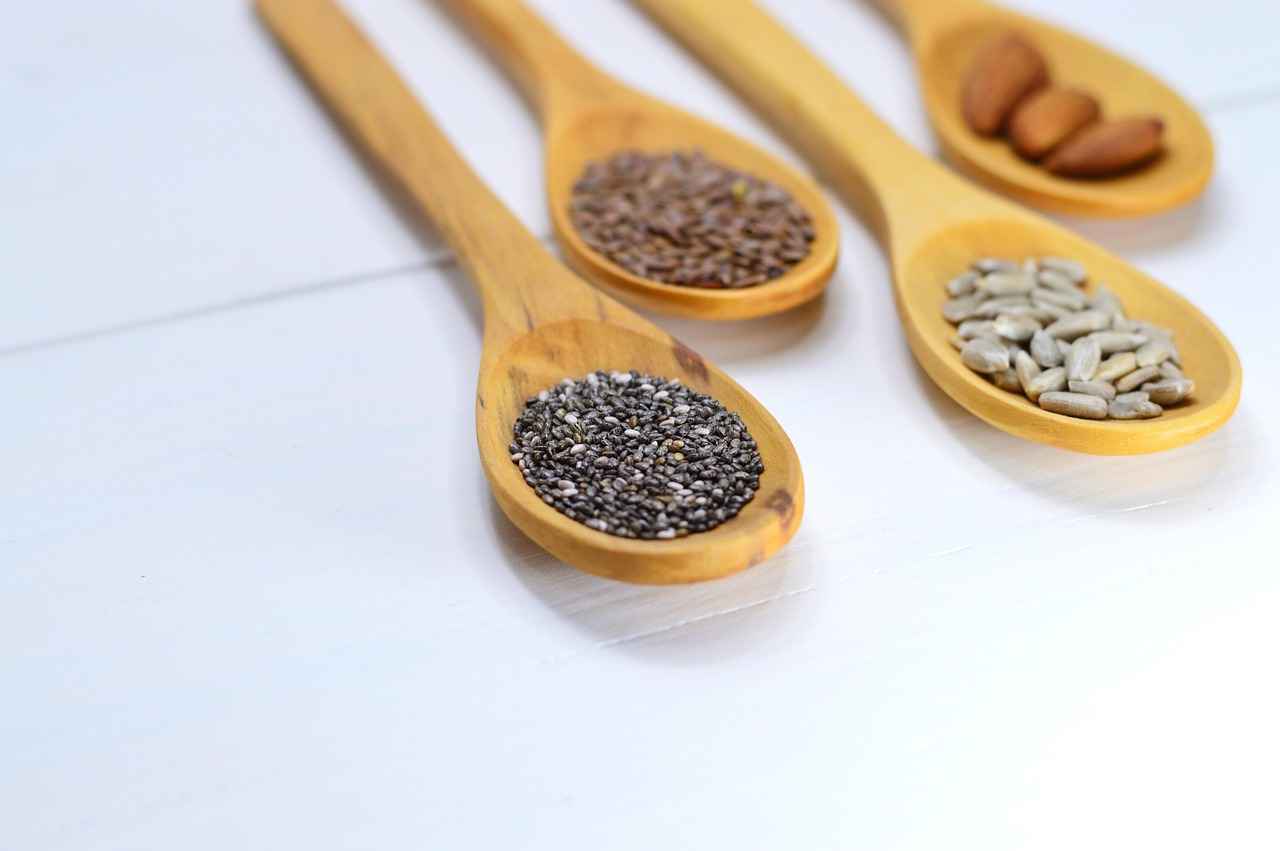
Are Chia Seeds Suitable for Everyone?
Chia seeds have gained immense popularity in recent years due to their numerous health benefits and versatility in various diets. However, as with any food, it is crucial to understand whether they are suitable for everyone, especially considering potential allergies and digestive issues.
While chia seeds are generally considered safe for most individuals, it’s essential to acknowledge that some people may experience allergic reactions or digestive discomfort when consuming them. Understanding these potential issues can help you make informed dietary choices.
Although rare, allergic reactions to chia seeds can occur. Symptoms may include itching, swelling, or gastrointestinal distress. Individuals with known allergies to other seeds, such as flaxseeds or sesame seeds, should exercise caution when trying chia seeds for the first time. It is advisable to consult a healthcare professional if you suspect a seed allergy.
Chia seeds are renowned for their high fiber content, which can be beneficial for digestive health. However, for some individuals, particularly those not accustomed to a high-fiber diet, consuming chia seeds can lead to gastrointestinal discomfort. This may manifest as bloating, gas, or constipation. It is recommended to start with a small amount, gradually increasing the intake to allow your digestive system to adjust.
To minimize the risk of digestive issues, consider the following tips for incorporating chia seeds into your meals:
- Start Small: Begin with 1 teaspoon of chia seeds and gradually increase to 1-2 tablespoons as your body adjusts.
- Soak Before Consumption: Soaking chia seeds in water or your favorite beverage can help soften them, making them easier to digest.
- Stay Hydrated: Ensure adequate water intake when consuming chia seeds to help manage their fiber content.
Experts generally recommend a daily intake of 1 to 2 tablespoons of chia seeds for optimal health benefits. This amount provides a balanced approach, allowing you to enjoy their nutritional advantages without risking digestive discomfort.
While chia seeds are beneficial for many, certain individuals should consider avoiding them or consulting a healthcare provider:
- Those with a history of seed allergies.
- Individuals with digestive disorders, such as irritable bowel syndrome (IBS).
- People on anticoagulant medications, as chia seeds can have a mild blood-thinning effect.
In summary, while chia seeds offer numerous health benefits and are generally safe for most people, it is essential to consider individual factors such as allergies and digestive health. By starting with small amounts and paying attention to your body’s responses, you can safely enjoy the nutritional advantages that chia seeds provide.
Potential Allergies and Side Effects
Chia seeds are celebrated for their numerous health benefits, particularly their high protein content and rich nutritional profile. However, it is essential to recognize that not everyone may tolerate chia seeds well. Understanding the potential allergies and side effects associated with chia seeds is crucial for anyone considering adding them to their diet.
While rare, some individuals may experience allergic reactions to chia seeds. Symptoms can range from mild to severe and may include:
- Itching or swelling in the mouth or throat
- Skin rashes or hives
- Gastrointestinal distress, such as nausea or vomiting
- Difficulty breathing or wheezing
If you have a known allergy to other seeds, such as sesame or flax, it is advisable to approach chia seeds with caution and consult a healthcare professional before consumption.
Chia seeds are incredibly high in fiber, which can lead to gastrointestinal discomfort for some individuals, especially if introduced too quickly into the diet. Symptoms may include:
- Bloating
- Gas
- Diarrhea or constipation
To minimize these effects, it is recommended to gradually introduce chia seeds into your diet. Start with small amounts, such as half a tablespoon, and slowly increase your intake as your body adjusts. This approach allows your digestive system to acclimate to the increased fiber content.
Chia seeds can absorb up to 12 times their weight in water, which can be beneficial for hydration. However, if consumed without adequate liquid, they may expand in the digestive tract and cause discomfort. Always ensure that chia seeds are soaked in water or added to smoothies or other liquids before consumption to prevent potential choking hazards and digestive issues.
Individuals with certain health conditions should exercise caution when consuming chia seeds. These include:
- Those with irritable bowel syndrome (IBS) or other digestive disorders
- Individuals on blood thinners, as chia seeds can have a mild anticoagulant effect
- People with a history of allergies to related seeds
Consulting with a healthcare provider can help determine whether chia seeds are a suitable addition to your diet.
To enjoy the benefits of chia seeds while minimizing the risk of side effects, consider the following tips:
- Start Small: Begin with a small amount and gradually increase your intake.
- Stay Hydrated: Ensure you drink plenty of water when consuming chia seeds.
- Soak Before Eating: Soak chia seeds in water or add them to smoothies to help with digestion.
In summary, while chia seeds are a nutritious addition to many diets, it is essential to be aware of potential allergies and gastrointestinal discomfort. By taking precautions and introducing them gradually, you can enjoy their health benefits without adverse effects.
Recommended Daily Intake
Chia seeds have gained immense popularity in recent years, thanks to their numerous health benefits and versatility in cooking. As a superfood, they are packed with nutrients, making them a valuable addition to any diet. However, understanding the right amount to consume is crucial for maximizing their benefits while avoiding potential side effects.
Experts recommend a daily intake of 1 to 2 tablespoons of chia seeds. This amount is considered optimal for most individuals to reap the health benefits without overconsumption. Incorporating this quantity into your diet is an effective way to enjoy the seeds’ nutritional advantages while maintaining a balanced intake.
The suggested daily intake of chia seeds is based on their rich nutrient profile. Just 2 tablespoons of chia seeds provide approximately 4 grams of protein, along with essential omega-3 fatty acids, fiber, and antioxidants. This balanced approach allows individuals to enhance their nutrient intake without overwhelming their digestive system.
Integrating chia seeds into your meals can be both easy and enjoyable. Here are some practical ideas:
- Chia Pudding: Mix chia seeds with your choice of milk and let them soak overnight to create a delicious pudding.
- Smoothies: Add a tablespoon of chia seeds to your smoothie for an extra protein boost.
- Salads: Sprinkle chia seeds over salads for added crunch and nutrition.
- Baking: Incorporate chia seeds into baked goods like muffins or bread for enhanced texture and health benefits.
Chia seeds are not only a source of protein but also offer various health benefits:
- Rich in Nutrients: They are packed with fiber, which aids digestion and promotes a feeling of fullness.
- Omega-3 Fatty Acids: These essential fats support heart health and reduce inflammation.
- Antioxidants: Chia seeds are loaded with antioxidants that help combat oxidative stress in the body.
While chia seeds are generally safe for most people, consuming them in excess can lead to digestive discomfort due to their high fiber content. It’s advisable to start with smaller amounts, especially for those new to chia seeds, and gradually increase intake to allow the body to adjust.
Yes, incorporating chia seeds into your diet can support weight management. Their high fiber content promotes satiety, helping to curb appetite and reduce overall calorie intake. By sticking to the recommended daily intake, you can leverage chia seeds as a beneficial tool in your weight management journey.
In summary, the recommended daily intake of 1 to 2 tablespoons of chia seeds is an excellent guideline for those looking to enhance their health and nutrition. By incorporating them into a balanced diet, you can enjoy their numerous benefits while avoiding potential digestive issues. Remember to be mindful of your body’s response and adjust your intake accordingly.

Can Chia Seeds Aid in Muscle Recovery?
Chia seeds have gained recognition not only for their protein content but also for their remarkable ability to aid in muscle recovery. This superfood is packed with nutrients that can benefit athletes and fitness enthusiasts alike. Understanding how chia seeds contribute to muscle recovery can help you optimize your post-workout nutrition.
Chia seeds are a rich source of various nutrients essential for muscle recovery:
- Omega-3 Fatty Acids: These healthy fats are known for their anti-inflammatory properties, which can help reduce muscle soreness and promote quicker recovery.
- Protein: With approximately 4 grams of protein per 2 tablespoons, chia seeds provide a plant-based protein source that supports muscle repair.
- Fiber: The high fiber content aids digestion and promotes gut health, which is crucial for nutrient absorption.
- Antioxidants: These compounds help combat oxidative stress caused by intense workouts, further supporting recovery.
The omega-3 fatty acids found in chia seeds, particularly alpha-linolenic acid (ALA), play a significant role in reducing inflammation. After strenuous exercise, the body experiences micro-tears in muscle fibers, leading to soreness and stiffness. Omega-3s help mitigate this inflammation, allowing muscles to recover more efficiently.
Chia seeds are unique in their ability to absorb up to 12 times their weight in water. This property not only aids in hydration but also helps maintain electrolyte balance, which is vital for optimal muscle function. Staying hydrated post-exercise can enhance recovery times and reduce the risk of cramping.
Integrating chia seeds into your diet is simple and versatile:
- Chia Pudding: Mix chia seeds with almond milk and let it sit overnight. Add fruits and nuts for a nutritious breakfast.
- Smoothies: Blend chia seeds into your favorite smoothie for an extra protein boost.
- Salads: Sprinkle chia seeds on salads for added crunch and nutrition.
- Energy Bars: Make homemade energy bars using chia seeds, oats, and nut butter for a post-workout snack.
While chia seeds are generally safe for most individuals, some may experience digestive issues due to their high fiber content. It is advisable to start with small amounts and gradually increase your intake. Additionally, those with allergies should consult a healthcare professional before incorporating chia seeds into their diet.
Experts recommend consuming 1 to 2 tablespoons of chia seeds daily to reap their health benefits without overdoing it. This amount provides sufficient nutrients to aid in muscle recovery while fitting seamlessly into a balanced diet.
In conclusion, chia seeds are a powerful addition to any athlete’s diet, not only for their protein content but also for their ability to support muscle recovery through anti-inflammatory properties, hydration benefits, and essential nutrients. By incorporating chia seeds into your post-workout routine, you can enhance your recovery and overall performance.
Anti-Inflammatory Properties
The of chia seeds are one of the key reasons they are highly regarded in the health and fitness community. These tiny seeds not only offer a rich source of protein but also contain essential nutrients that can significantly aid in muscle recovery and overall well-being.
Chia seeds are particularly rich in omega-3 fatty acids, specifically alpha-linolenic acid (ALA). This type of omega-3 is known for its ability to combat inflammation in the body. When consumed, ALA can help lower the levels of inflammatory markers, which is crucial for athletes and individuals engaging in regular physical activity.
Reducing inflammation can lead to enhanced recovery times after intense workouts. When inflammation is minimized, muscle soreness and stiffness can be reduced, allowing individuals to return to their training regimens more quickly. This is particularly beneficial for athletes looking to maintain their performance levels and prevent overtraining.
In addition to their anti-inflammatory properties, chia seeds also provide a complete amino acid profile, which is essential for muscle repair and growth. The combination of protein and omega-3 fatty acids in chia seeds helps to optimize muscle function and recovery, making them an ideal addition to any athlete’s diet.
Besides omega-3 fatty acids, chia seeds are also a rich source of fiber, antioxidants, and various vitamins and minerals. These nutrients contribute to overall health and can support the body during recovery phases:
- Fiber: Aids in digestion and helps maintain stable energy levels.
- Antioxidants: Combat oxidative stress caused by intense workouts.
- Vitamins and Minerals: Essential for various bodily functions, including muscle contraction and recovery.
To reap the benefits of chia seeds, it is essential to include them in your daily diet. Here are some practical ways to do so:
- Add chia seeds to smoothies for an extra protein boost.
- Mix them into yogurt or oatmeal for added texture and nutrition.
- Use chia seeds as a thickening agent in soups and sauces.
- Incorporate them into baked goods, such as muffins or energy bars.
While chia seeds are generally safe for most people, some may experience digestive discomfort if consumed in large quantities due to their high fiber content. It is advisable to start with a small amount and gradually increase intake to allow the body to adjust.
Experts recommend consuming about 1 to 2 tablespoons of chia seeds daily to enjoy their health benefits without overdoing it. This amount can easily be integrated into various meals, ensuring you receive the nutritional advantages they offer.
In conclusion, the of chia seeds, combined with their rich nutritional profile, make them a powerful ally in muscle recovery and overall health. By incorporating these seeds into your diet, you can enhance your performance and support your body’s recovery processes effectively.
Hydration Benefits
Chia seeds have gained immense popularity in the health and wellness community, and for good reason. One of their most remarkable properties is their ability to absorb up to 12 times their weight in water. This unique characteristic makes chia seeds an exceptional natural source for hydration, which is vital for optimal muscle performance and recovery.
Hydration plays a crucial role in muscle performance. When the body is adequately hydrated, it can function at its best, allowing muscles to work efficiently during exercise. Dehydration, on the other hand, can lead to fatigue, decreased endurance, and even muscle cramps. This is why it’s essential for athletes and fitness enthusiasts to maintain proper hydration levels.
When chia seeds are mixed with liquid, they form a gel-like substance. This gel not only helps to retain moisture but also provides a slow release of hydration to the body. The soluble fiber in chia seeds absorbs water, which can help maintain hydration levels for a longer period. This is particularly beneficial during intense workouts or endurance sports where fluid loss is significant.
Integrating chia seeds into your diet can be simple and delicious. Here are a few effective ways to include them:
- Chia Pudding: Soak chia seeds in your choice of milk or plant-based alternatives overnight to create a nutritious pudding.
- Smoothies: Add a tablespoon of chia seeds to your smoothies for an added hydration boost.
- Salads: Sprinkle chia seeds over salads to enhance texture and hydration.
- Water Infusion: Mix chia seeds in water or herbal teas for a refreshing drink.
Proper hydration is not only essential for performance but also for muscle recovery. After an intense workout, your muscles need to repair and replenish. Chia seeds, with their ability to absorb water, can assist in this recovery process by helping to restore lost fluids. The omega-3 fatty acids present in chia seeds also contribute to reducing inflammation, further aiding recovery.
While chia seeds are generally safe for most individuals, it’s important to consume them in moderation. Their high fiber content can lead to digestive discomfort if introduced too quickly into the diet. Start with a small amount and gradually increase your intake to allow your digestive system to adjust.
In summary, the hydration benefits of chia seeds are significant, especially for those engaged in physical activities. By incorporating chia seeds into your diet, you can enhance your hydration levels, support muscle performance, and promote effective recovery. Whether through chia pudding, smoothies, or simple water infusions, these tiny seeds can have a big impact on your hydration strategy.
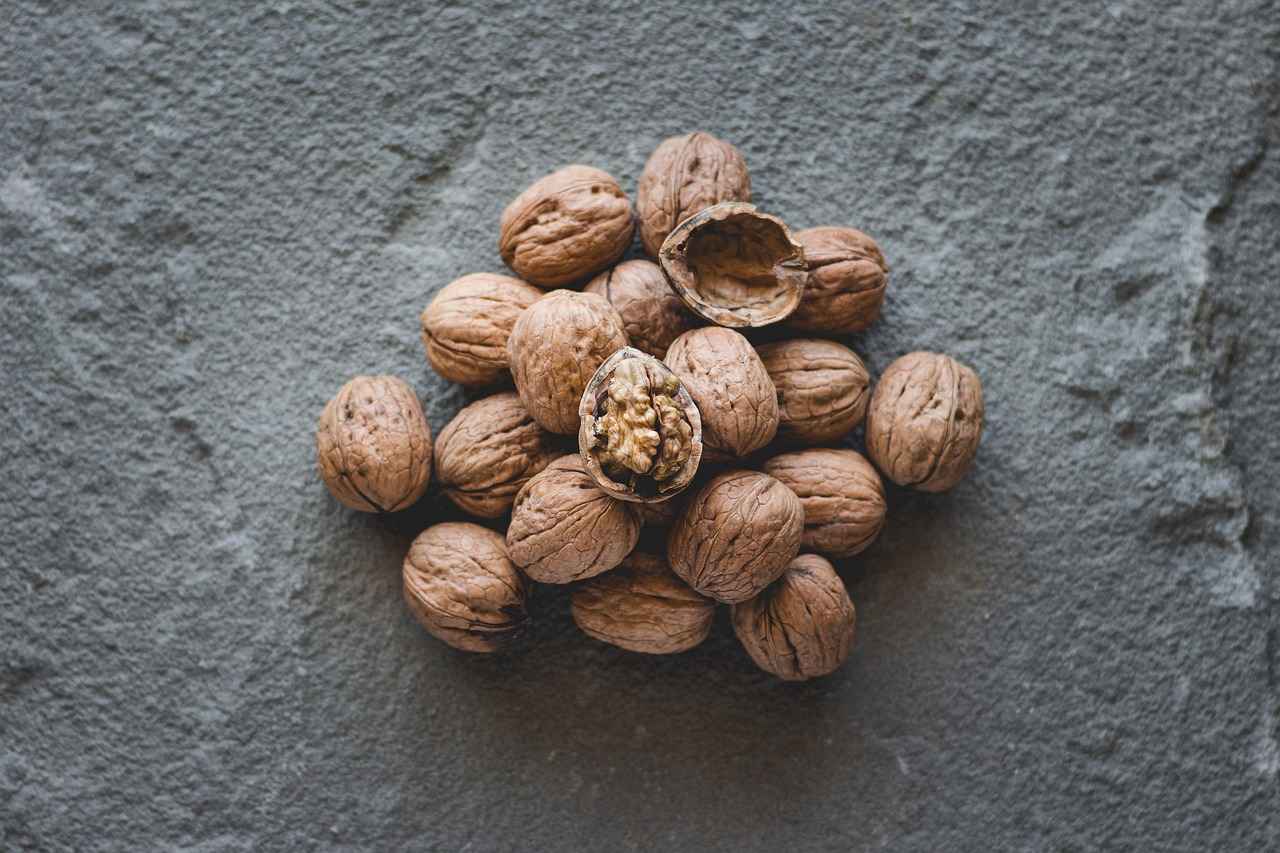
How Do Chia Seeds Fit into a Balanced Diet?
Incorporating chia seeds into your daily meals can significantly enhance your nutritional intake, particularly for those pursuing a healthier lifestyle. These tiny seeds are packed with essential nutrients that can complement various food groups, making them an excellent addition to a balanced diet.
Chia seeds are a powerhouse of nutrition. They are rich in fiber, omega-3 fatty acids, and a complete source of plant-based protein. Just two tablespoons of chia seeds contain:
- 4 grams of protein
- 11 grams of fiber
- 5 grams of omega-3 fatty acids
- Calcium, magnesium, and various antioxidants
This impressive profile makes chia seeds an ideal choice for individuals looking to support muscle growth and overall health.
One of the best aspects of chia seeds is their versatility. They can be easily incorporated into a variety of dishes, enhancing both flavor and nutrition. Here are some popular ways to include chia seeds in your meals:
- Smoothies: Add a tablespoon of chia seeds to your morning smoothie for an extra protein boost.
- Overnight Oats: Mix chia seeds with oats, yogurt, and fruits for a nutritious breakfast.
- Baking: Substitute some flour with ground chia seeds in your baking recipes for added nutrients.
- Salads: Sprinkle chia seeds on salads for a crunchy texture and nutritional enhancement.
Yes, chia seeds can play a vital role in muscle growth due to their complete amino acid profile. Unlike many plant proteins, chia seeds contain all nine essential amino acids necessary for muscle repair and growth. This makes them particularly beneficial for those following a vegan or vegetarian diet.
Post-exercise recovery is crucial for athletes and fitness enthusiasts. Chia seeds contribute to recovery through:
- Anti-inflammatory properties: The omega-3 fatty acids in chia seeds help reduce inflammation, aiding muscle recovery.
- Hydration: Chia seeds can absorb up to 12 times their weight in water, helping to maintain hydration levels.
While chia seeds are generally safe for most people, there are a few considerations to keep in mind:
- Allergies: Some individuals may experience allergic reactions, so it’s best to start with small amounts.
- Digestive Issues: Due to their high fiber content, it’s important to gradually incorporate chia seeds into your diet to avoid gastrointestinal discomfort.
Experts recommend consuming about 1 to 2 tablespoons of chia seeds daily. This amount provides a balanced approach to enjoying their health benefits without overconsumption. Remember to drink plenty of water, as chia seeds expand and absorb liquid, which aids in digestion and hydration.
Incorporating chia seeds into your diet can enhance your overall nutrition, providing a plant-based protein source while complementing other food groups for muscle growth and health. With their numerous health benefits and versatile applications, chia seeds are a valuable addition to any balanced diet.
Pairing Chia Seeds with Other Foods
Chia seeds are an incredibly versatile ingredient, offering a wealth of nutrients that can significantly enhance your meals. When combined with a variety of fruits, vegetables, and healthy fats, chia seeds create a nutrient-dense meal that not only supports muscle growth but also promotes overall well-being. This article will explore the benefits of pairing chia seeds with other foods and provide practical meal ideas to maximize their potential.
Fruits are naturally rich in vitamins, minerals, and antioxidants, making them an ideal companion for chia seeds. The combination of fiber from both chia seeds and fruits can improve digestive health and enhance nutrient absorption. For example, adding chia seeds to a smoothie with bananas or berries can create a delicious and satisfying meal that fuels your body with essential nutrients.
Vegetables are another excellent pairing for chia seeds. They provide a diverse range of nutrients, including vitamins, minerals, and phytonutrients. Incorporating chia seeds into salads or vegetable-based dishes can significantly boost their nutritional profile. For instance, a salad topped with chia seeds, spinach, and colorful bell peppers not only looks appealing but also delivers a powerful punch of nutrients that support muscle repair and recovery.
Adding healthy fats to meals that include chia seeds can further enhance their benefits. Foods like avocado, nuts, and olive oil can provide essential fatty acids that are crucial for muscle growth and hormone production. A breakfast bowl featuring chia seeds, almond butter, and sliced bananas offers a perfect balance of protein, healthy fats, and carbohydrates, making it a great option for post-workout recovery.
- Chia Seed Pudding: Mix chia seeds with almond milk and let them sit overnight. Top with fresh fruits and nuts for a delicious breakfast or snack.
- Smoothies: Blend chia seeds with spinach, banana, and your choice of protein powder for a nutrient-packed smoothie.
- Salads: Sprinkle chia seeds over mixed greens, cherry tomatoes, and sliced cucumbers, drizzled with a lemon-olive oil dressing.
- Overnight Oats: Combine oats, chia seeds, yogurt, and your favorite fruits in a jar for an easy, on-the-go breakfast.
To truly maximize the benefits of chia seeds, aim to incorporate them into a variety of meals throughout the day. This not only keeps your diet interesting but also ensures that you receive a broad spectrum of nutrients. By combining chia seeds with fruits, vegetables, and healthy fats, you create a balanced meal that supports muscle growth and overall health.
In conclusion, the versatility of chia seeds makes them an excellent addition to a wide range of dishes. By pairing them with nutrient-rich foods, you can enhance their benefits and create delicious meals that contribute to your fitness and wellness goals.
Meal Ideas Featuring Chia Seeds
Chia seeds are not only a source of protein but also a versatile ingredient that can enhance the nutritional value of various meals. Their unique ability to absorb liquid and form a gel-like consistency opens up a world of culinary possibilities. Below are some creative meal ideas that incorporate chia seeds, ensuring you enjoy their health benefits while keeping your diet exciting and varied.
Start your day with a refreshing smoothie that packs a nutritional punch. Combine your favorite fruits such as bananas, berries, and spinach with a cup of almond milk. Add 2 tablespoons of chia seeds for a boost of protein and fiber. The chia seeds will not only enhance the texture but also keep you full longer.
Overnight oats are a simple yet satisfying breakfast option. Mix rolled oats, yogurt, and your choice of milk in a jar. Stir in 1 tablespoon of chia seeds along with honey and cinnamon for sweetness. Let it sit overnight in the refrigerator, and in the morning, you’ll have a creamy, nutritious meal ready to go!
Chia seed pudding is a delightful and nutritious snack. Combine 1/4 cup of chia seeds with 1 cup of coconut milk and a sweetener of your choice. Stir well and let it sit for at least 4 hours or overnight. Top it with fresh fruits, nuts, or granola for added flavor and texture.
Add chia seeds to your baking recipes for an extra nutritional boost. Whether you’re making muffins, bread, or pancakes, incorporate 2 tablespoons of chia seeds into the batter. They will blend seamlessly and provide additional fiber and protein without altering the taste.
Create your own energy bars by blending dates, nuts, oats, and chia seeds. Press the mixture into a pan and refrigerate until firm. Cut into bars for a convenient and healthy snack that’s perfect for on-the-go energy.
Sprinkle chia seeds on top of your salads for added crunch and nutrition. They pair well with leafy greens, avocado, and a variety of dressings. Just 1 tablespoon of chia seeds can elevate your salad, providing a satisfying texture and a dose of healthy fats.
Chia seeds can also be added to soups and stews as a thickening agent. They will absorb excess liquid, giving your dish a hearty consistency. Just add 1-2 tablespoons towards the end of cooking and let them swell to enhance the texture.
For a refreshing drink, mix chia seeds into your favorite juice or flavored water. Allow them to soak for about 30 minutes, and enjoy a hydrating beverage that’s packed with nutrients. This is a great way to stay hydrated while benefiting from the seeds’ omega-3 fatty acids.
As you can see, incorporating chia seeds into your meals is not only easy but also delicious. From smoothies to savory dishes, the options are endless. By experimenting with these meal ideas, you can enjoy the numerous health benefits of chia seeds while keeping your diet varied and interesting.
Frequently Asked Questions
- What are the main benefits of chia seeds for muscle growth?
Chia seeds are packed with protein, providing all nine essential amino acids needed for muscle repair and growth. They also contain omega-3 fatty acids, fiber, and antioxidants, which help in reducing inflammation and enhancing recovery after workouts.
- How can I include chia seeds in my diet?
You can easily add chia seeds to your diet by mixing them into smoothies, yogurt, oatmeal, or even baking them into breads and muffins. Their versatility allows you to enjoy their nutritional benefits without altering the taste of your favorite meals.
- Are there any side effects of consuming chia seeds?
While chia seeds are safe for most people, some may experience digestive issues due to their high fiber content. It’s best to start with a small amount and gradually increase your intake to avoid discomfort.
- How much chia seeds should I eat daily?
Experts recommend consuming 1 to 2 tablespoons of chia seeds per day. This amount helps you reap their health benefits without overdoing it, making it a balanced addition to your diet.
- Can chia seeds help with hydration?
Absolutely! Chia seeds can absorb up to 12 times their weight in water, making them an excellent natural source for hydration. This is especially beneficial for athletes needing to maintain optimal performance and recovery.
